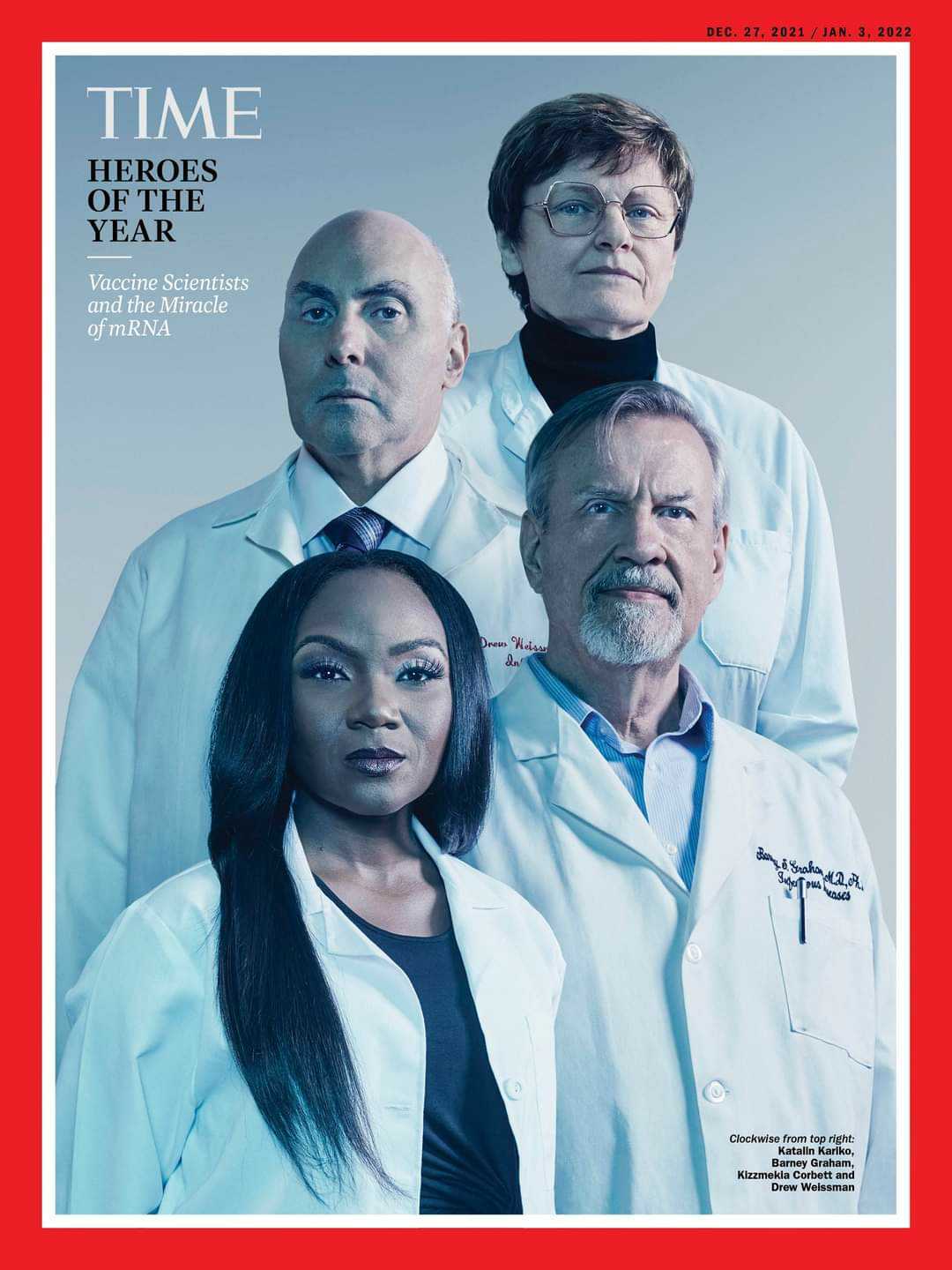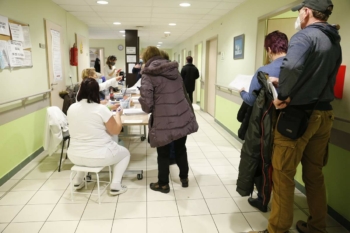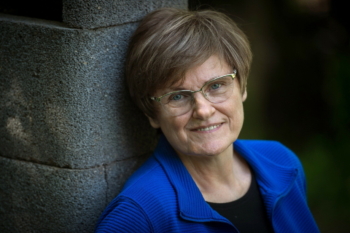Katalin Karikó’s team is chosen as Hero of the Year by TIME
According to the magazine, the miracle workers behind the COVID-19 vaccines channeled their ambitions to the common good, talked to one another and trusted in facts.
This year the acknowledgments were given to professionals who played a significant role in developing the vaccines against Covid-19. These hardworking heroes are Kizzmekia Corbett, Barney Graham, Katalin Karikó and, last but not least, Drew Weissman.
Katalin Karikó grew up in a small town in Hungary. She studied biology at the University of Szeged where she first learned about RNA. Her interest in this branch of science continued as she pursued higher education getting a master’s degree and then a Ph.D., writes Time. She worked at the Biological Research Centre at Szeged, but after her unsuccessful attempt in corralling mRNA, she lost funding to her laboratory.

The now world-famous scientist was perseverent and dedicated to her mission. She decided not to give up on her goal and found a position at Temple University in Philadelphia. Despite her effort, there was an obstacle she had to overcome.
Hungarian citizens were not allowed to take more than $50 with them when they left the country. This measure was taken by the government to ensure that citizens would not become defectors. The Hungarian scientist, however, had a solution to this issue. She and her husband sold their car for $1,200, and hid the cash in their daughter’s teddy bear.
Time presents Karikó as a perseverant woman who is fully dedicated to science. When she moved to the University of Pennsylvania in 1989 there were very few people working on mRNA. She spent long hours at the laboratory and applied for grants every month. According to her, she got rejected at least 24 times, but she always wanted to know the reason for the rejection and the ways she could improve her work.
Once again, after 6 years, her efforts seemed unappreciated and she lost funding to the lab for the second time. She moved to the neurosurgery department to earn a living, but continued her research.
She met immunologist and physician Drew Weissman by the copy machine at the office. They struck up a conversation and she managed to convince Weissman about the importance of mRNA research. Afterwards, the two scientists worked together for more than a decade.
In 2005, their results were published in the journal Immunity, and they were looking towards the future with high expectations. Yet their hopes did not seem to blossom.
It took a pandemic for the world to understand the value of Kariko’s work – the magazine writes. In 2013, Kariko joined BioNTech to participate in the mRNA program. By this time, Ugur Sahin and Ozlem Tureci, co-founders of BioNTech, were already working on mRNS. Although, they initially had a different goal. The two co-founders tried to develop a vaccine against cancer. When Chinese researchers provided information about the coronavirus, Karikó and Weissman could finally put their knowledge into practice. Then the German company partnered with Pfizer and the rest is history.
In the meantime, Kizzmekia Corbett and Dr. Barney Graham were central figures in developing Moderna’s vaccine. The four scientists finally reaped the success of their hard work and received the acknowledgments they deserved.
And to combat the false and skeptical rumours about the vaccine, there is one more thing to add. Contrary to the misinformation, both Weissman and Karikó have taken the vaccine that they developed themselves. The duo got their first dose on 18 December last year.

Read alsoBreaking news – Omicron variant present in Hungary!

Read alsoCould the Omicron variant end the pandemic? – Katalin Karikó is hopeful
Source: 24.hu, time.com
please make a donation here
Hot news
What happened today in Hungary – 26 July, 2024
Drama: number of births in a 20-year low in Hungary
Yay or nay? – 6 odd Hungarian delicacies that make our skin crawl
Budapest tourism “exploded” this past weekend
Container transport in Budapest may stop: How will this affect Hungarian economy?
Minister: Hungary will protect its territory by every means possible




2 Comments
Katalin Karikó makes us proud.
Kizzmekia Corbett and Dr. Barney Graham are functionaries at the American health institute run by Dr. Anthony Fauci. Their work description consists of the examination, evaluation, and approval of vaccines for human consumption. Neither has had any role in “inventing” the vaccines, Moderna’s or other’s.
Ms. Corbett was floating in her mom’s womb when Kati Karikó synthesized RNA at the Szeged University. Corbett is 37 years old, and was 35 when she and Fauci tried to take the credit.
The inclusion of Ms. Corbett is another historical revision driven by critical race theory, aka, reverse racism, that overtook America.
Corbett was hired out of college by the time mRNA, the technology, was more or less fully developed. She is no more than a lab technician, elevated in the people’s eyes by Barack Obama after getting an affirmative action taxpayer-funded education. If one could call it that. And then elevated to a professorship at Harvard U, the same university that earlier elevated Barack Obama to teach a predecessor to CRT fake history, this time applied to law, as an adjunct professor.
Obama did not author a single article for the Harvard Law Journal at which he was editor.
The inventors of the technology and the vaccines – to correct the record, accordingly, and the only ones deserving the credit – are the Bio N-Tech team, Karikó, Weissman, and one TIME dropped off, the Hungarian Norbert Pardi who invented the lipid delivery system, without which the vaccines would not have been possible.